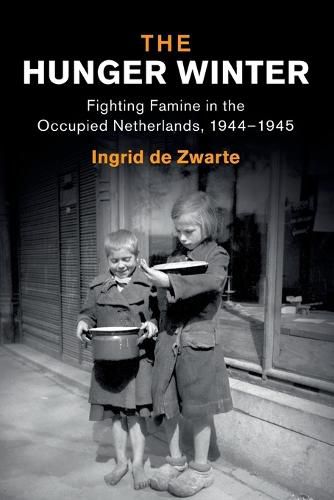Readings Newsletter
Become a Readings Member to make your shopping experience even easier.
Sign in or sign up for free!
You’re not far away from qualifying for FREE standard shipping within Australia
You’ve qualified for FREE standard shipping within Australia
The cart is loading…






In this pioneering study, Ingrid de Zwarte examines the causes and demographic impact of the Dutch ‘Hunger Winter’ that occurred in the Netherlands during the final months of German occupation in the Second World War. She offers a comprehensive and multifaceted view of the socio-political context in which the famine emerged and considers how the famine was confronted at different societal levels, including the responses by Dutch, German and Allied state institutions, affected households, and local communities. Contrary to highly-politicized assumptions, she argues that the famine resulted from a culmination of multiple transportation and distribution difficulties. Although Allied relief was postponed for many crucial months and official rations fell far below subsistence level, successful community efforts to fight the famine conditions emerged throughout the country. She also explains why German authorities found reasons to cooperate and allow relief for the starving Dutch. With these explorations, The Hunger Winter offers a radically new understanding of the Dutch famine and provides a valuable insight into the strategies and coping mechanisms of a modern society facing catastrophe.
$9.00 standard shipping within Australia
FREE standard shipping within Australia for orders over $100.00
Express & International shipping calculated at checkout
In this pioneering study, Ingrid de Zwarte examines the causes and demographic impact of the Dutch ‘Hunger Winter’ that occurred in the Netherlands during the final months of German occupation in the Second World War. She offers a comprehensive and multifaceted view of the socio-political context in which the famine emerged and considers how the famine was confronted at different societal levels, including the responses by Dutch, German and Allied state institutions, affected households, and local communities. Contrary to highly-politicized assumptions, she argues that the famine resulted from a culmination of multiple transportation and distribution difficulties. Although Allied relief was postponed for many crucial months and official rations fell far below subsistence level, successful community efforts to fight the famine conditions emerged throughout the country. She also explains why German authorities found reasons to cooperate and allow relief for the starving Dutch. With these explorations, The Hunger Winter offers a radically new understanding of the Dutch famine and provides a valuable insight into the strategies and coping mechanisms of a modern society facing catastrophe.